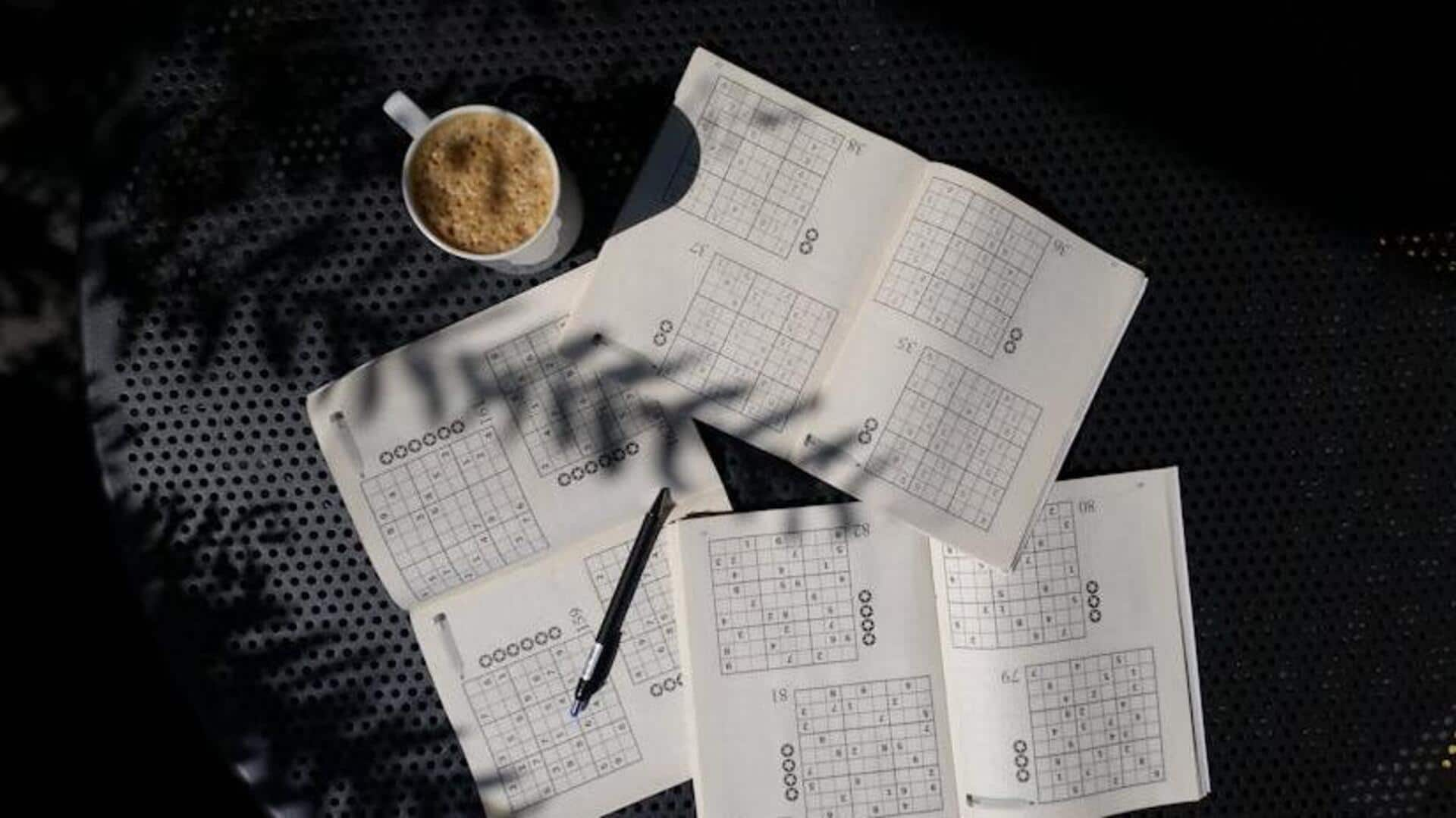
Enhancing problem-solving skills with daily math puzzles
What's the story
Solving mathematical puzzles daily can greatly improve your problem-solving skills. It not only exercises your brain but also provides a fun and interactive way to challenge yourself. Math puzzles can vary from basic arithmetic to more complex problems that need logical reasoning and critical thinking. Regularly solving these puzzles can improve cognitive skills, memory, and patience.
Basics
Start with simple puzzles
Beginners should start with simple puzzles that are not too intimidating or discouraging. Starting with simple arithmetic puzzles (addition, subtraction, multiplication, division) allows you to slowly build up your confidence. Simple puzzles lay the groundwork for understanding more complex math later on. They also help you develop an eye for patterns and numbers, which is key to solving more advanced problems.
Advancement
Progress to more challenging puzzles
After getting the hang of the basics, one should slowly start introducing more challenging puzzles. Brain teasers, Sudoku, and logic-based puzzles are particularly good for this. Unlike simple math puzzles, these ones require you to think creatively, logically, and strategically. By moving on to harder puzzles, you ensure your brain continues to grow and stays active.
Consistency
Make it a daily habit
The secret to improving problem-solving skills through mathematical puzzles is consistency. By dedicating a specific time each day to puzzle-solving, you can establish a routine and make it a habit. Whether it's a morning challenge with your coffee or a relaxing evening wind-down, daily dedication is key to progress. With time, you would see a significant improvement in your problem-solving skills.
Digital tools
Use online resources and apps
The internet is teeming with resources and applications that offer a vast selection of math puzzles for all skill levels. By using these tools, you can have an infinite library of puzzles at your fingertips, ready to be solved wherever and whenever you want. Plus, many apps provide detailed solutions and explanations, which are excellent for learning new techniques and methods for tackling challenging problems.
Social learning
Engage in competitions or group challenges
Competing with others or as a part of a team fosters a spirit of healthy competition, motivating individuals to push beyond their comfort zones and think outside the box. It provides an opportunity to learn from others' strategies and problem-solving methods. Collaborating with friends or family in these challenges makes learning fun and fosters a supportive community for sharing both mistakes and successes.